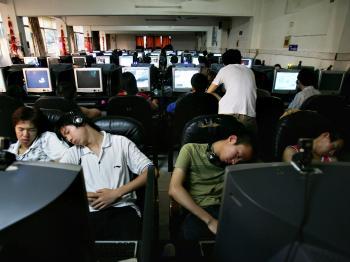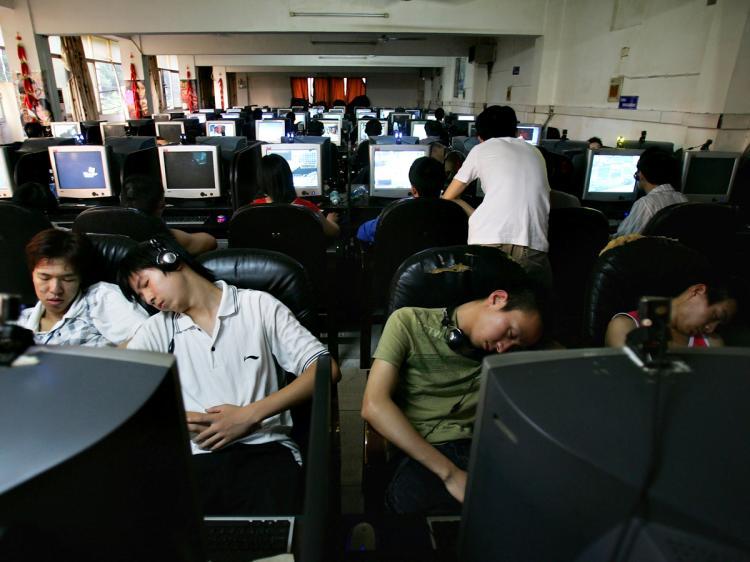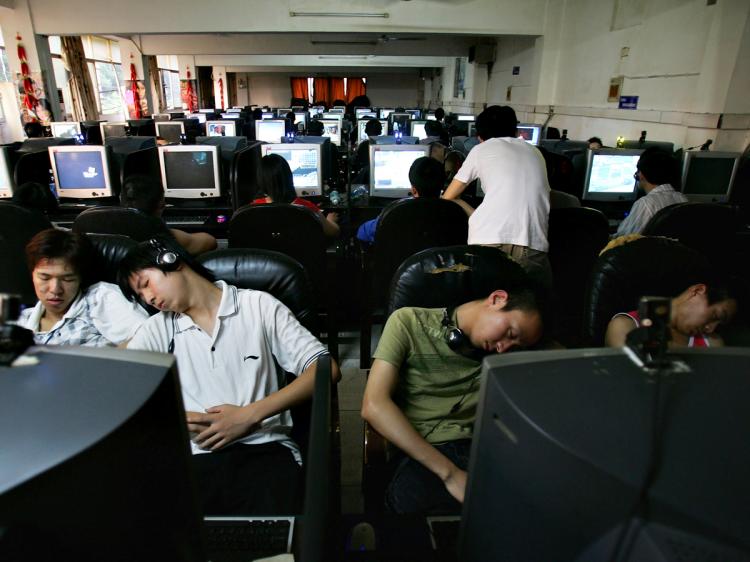We may joke about it, but most people do not seriously consider their compulsive Twittering, or Facebook status updating, an actual addiction.
According to Facebook’s own statistics, its average user spends more than 55 minutes a day on the site. Twitter users, meanwhile, average 27.3 million text-based posts (or “tweets”) per day—a total of about 8 billion tweets since the site began in 2007.
Add to this the time spent in online gaming—World of Warcraft boasts over 11 million subscribers, and growing—and it becomes clear that much of modern life is spent in front of a computer screen.
The Internet has certainly enriched our lives in a number of ways. This technology allows access to a wealth of information, entertainment, and a connection to family and friends that was previously impossible. But when does our obsession for the Web and video games become an actual addiction, and how dangerous can it be?
In some instances, users are not merely tempted by the allure of the Internet, but by the financial gain offered online.
In countries that allow legalized gambling, this can often include more than just online poker. In South Korea, proficiency at skill-based video games such as the Xbox 360, and Playstation 3 can earn vast amounts of money.
Multi-player gaming is extremely popular in this country and is even considered a sport in which gamers are televised. Here, professional players can make over $100,000 a year and can even cultivate a large following of fans.
Young gamers from all parts of South Korea are forming or joining leagues in an attempt to cash in on the phenomenon. Many individuals spend countless hours playing video games in hopes that they may hone their skills well enough to compete. In this environment, inspiring young gamers can spend more than 30 hours a week playing video games.
Described as the home of the worlds’s most extreme gamer culture, South Korea has an estimated 2.4 percent of the population ages 9 to 39 that may be suffering from some form of gaming or computer addiction.
In some instances, dedication to gaming can even be fatal. The BBC recently reported the story of a 28-year-old South Korean man who collapsed and died after a 50-hour marathon gaming session. According to police, the man had slept and eaten very little, focusing most of his life on gaming. The presumed cause of death was heart failure due to extreme exhaustion.
In the U.S., classification of video game and computer obsession as an addiction has not been widely publicized. Likewise, treatment addressing this addiction receives little attention.
In 2007, there was a motion to include gaming and Internet addiction to the American Psychiatric Association’s (APA) Diagnostic and Statistical Manual of Mental Disorders (DSM). It was rejected as experts stated that it may be premature to consider the matter without more serious study. An entry on Internet addiction has been officially held until 2012, but is up for review in the upcoming update to the DSM-V.
The online gaming industry is also reluctant to suggest that vigorous video gaming could be classified as an addiction. Green Pixels, a site providing information of online gaming ran an article earlier this year titled, “Game Addiction: Real Threat or Media Hype?” They write that according to Entertainment Consumers Association President Hal Halpin, comparing video games to drugs is “absurd and baseless media hype. The problem with that argument is that it’s dependent on a faulty hypothesis: games, like music and movies, aren’t literally consumed or ingested the way that alcohol, tobacco, or narcotics are.”
In some countries computer addiction is a very real problem. For example, China has found itself among the first countries to identify, and offer treatment for, Internet and computer addictions.
China has the largest number of Internet users in the world (nearly 300 million), but they also have the most resources devoted to Internet addiction recovery centers. Militaristic in style, many of these facilities are even found near military bases.
One such center located outside Beijing, run by progressive Chinese psychologist Tao Ran, aims to treat non-substance addictions, including work, shopping, and net-aholics. These facilities often employ aggressive treatment plans to break individuals of their addictions.
While the APA is still deliberating on identifying a computer addiction, many psychiatric professionals in the U.S. have observed that an obsessive compulsion toward the Internet and gaming is no different from other forms of addiction.
For parents who are concerned that their child may be addicted to video games www.video-game-addiction.org offers information on identifying a problem as well as methods to treat it.
“Of course, all gamers are not addicts,” the site explains, “many teens can play video games a few hours a week, successfully balancing school activities, grades, friends, and family obligations. But for some, gaming has become an uncontrollable compulsion. Studies estimate that 10 percent to 15 percent of gamers exhibit signs that meet the World Health Organization’s criteria for addiction. Just like gambling and other compulsive behaviors, teens can become so enthralled in the fantasy world of gaming that they neglect their family, friends, work, and school.”






